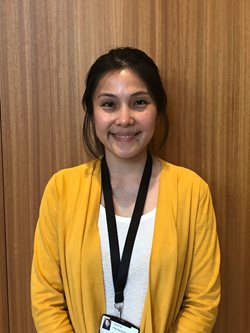September 5, 2018 Print
Velma Herwanto, a PhD student from the Westmead Institute and University of Sydney, has received best international abstract in the upcoming International Sepsis Forum.
The abstract was based on Velma’s research on developing a test for sepsis, a potentially life-threatening condition.
 Velma will present her research at the International Sepsis Forum in October.
Velma will present her research at the International Sepsis Forum in October.
“Sepsis is a complication of a severe infection, such as pneumonia,” Velma explained.
“It’s characterised by symptoms such as dangerously low blood pressure, rapid heart rate, fever, and difficulty breathing.”
There is no test for early detection of sepsis, meaning early warning signs may go unnoticed until symptoms become critical. However, in the future Velma’s research could help develop a simple blood test that could reduce mortality rates.
“Sepsis needs to be dealt with immediately, because it can go from the initial symptoms, to a life-threatening condition in a short time span,” Velma said.
“I’m analysing the metabolic profile of blood samples taken from sepsis patients, then comparing these profiles to the severity of infection and sepsis to look for patterns,” Velma said.
So far, Velma has found that patients with more severe sepsis have more reduced mitochondrial function. Eventually, Velma hopes to find a biomarker that can help predict sepsis.
“We don’t know which patients will develop sepsis and which won’t,” Velma said.
“A test would allow us to give more aggressive treatment to at-risk patients to reduce the likelihood of sepsis developing.”
Velma will present this research at the conference in October.
“I’m actually very nervous – there’s going to be a lot of people there!” she said.
“It’s intimidating to know that I’ll be asked questions by some of the world leading sepsis researchers.
“But, I’ve attended the conference before and am really interested in sepsis and infectious diseases, so it should be a good experience.”
Good luck, Velma! We hope the presentation goes well.
Velma is supervised by Dr Benjamin Tang and Professor Anthony McLean, co-supervised by Dr Ya Wang and Dr Maryam Shojaei.